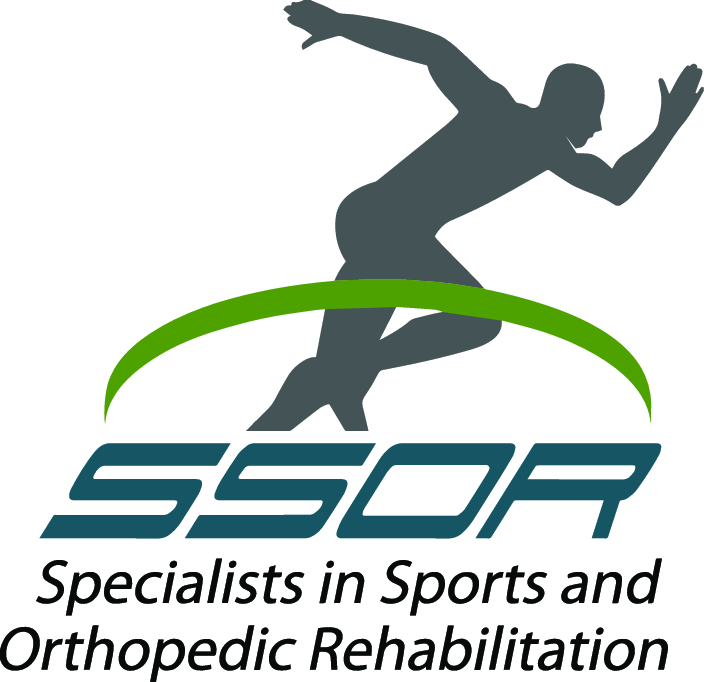Knee swelling and other symptoms can be scary and worrisome, whether you can remember twisting or extending your knee funny in the past few days or are simply noticing a gradual change in your knee’s appearance.
Fortunately, in most cases, these symptoms are treatable through physical therapy techniques or even at-home care. Take a breath, think about your symptoms, and understand that even if you do need to see someone about knee swelling, it’s worth it to get the expert opinion rather than waiting for it to get worse.
Types of swollen knee symptoms
Swelling is a symptom in itself, but is often just one of a few symptoms you might experience when you have a knee problem. A few other main symptoms that can affect your knee when it’s swollen include:
- Stiffness
- Fluid accumulation
- Knee pain
- Tenderness
- Reduced range of motion
Your symptoms can help you narrow down a cause but aren’t always straightforward in terms of recommending treatment, which is where a personal evaluation with a professional can be helpful.
Causes of swollen knee
Your knees can become swollen due to either fluid buildup in the knee joint area or inflammation in response to an injury or chronic health condition like arthritis. But how do you know if the swelling is due to fluid accumulation or inflammation?
- Inflammation can result in swelling, visible redness, and the area being both sensitive and warm to the touch.
- Fluid accumulation in the knee may not be as warm in comparison to inflammation and often results in a kind of numbed and stiff sensation.
Both types of swelling can be caused by any number of chronic conditions or acute injuries, including:
- ACL tears
- Meniscus tears
- Irritation from overuse or degraded soft tissue (bursitis)
- Torn ligaments
- Infection
- Cysts
- Rheumatoid or osteoarthritis
For people already dealing with chronic health conditions, such as osteoarthritis, the best course of treatment is likely seeing a specialist who understands your overall health condition and how it could be contributing to your knee pain symptoms.
For others whose knee swelling came after an injury or participation in some new activity, the damage could be mild, but even if you’re able to bear weight on it currently doesn’t mean it will heal perfectly fine on its own. A physical therapist can assess the extent of the damage and recommend a comprehensive treatment plan involving rest from certain activities as well as exercises to keep the joint strong and flexible as it heals.
When to see a medical professional about a swollen knee
Some people may find relief and healing from knee swelling on their own with some low-risk treatments at home.
For knee swelling caused by either inflammation or fluid accumulation, the general recommendations of rest, ice, compression, and elevation can provide some people with relief. In general, when dealing with knee swelling, try to rest your legs as much as possible. And when you’re not on your feet, try to elevate your ankle above the level of your hips, even or especially when you sleep. Apply an ice pack wrapped in a towel to the area to help reduce inflammation by restricting blood flow. If you have a knee brace, compression can help reduce fluid accumulation but may make inflammation worse.
Generally, if your knee pain and swelling are substantially reduced at home following one of these or another method, and you’re not in discomfort, you may not need to see a specialist. However, if your condition hasn’t changed despite rest and other at-home interventions, or if your knee swelling is sudden and substantial, consider reaching out for help sooner rather than later.
Get help for knee pain and other symptoms
Don’t let the anxiety of the unknown ruin your day even more than knee pain. At SSOR, we understand that seeking medical treatment for something that may not be “that bad” can feel overwhelming and unnecessary, but we want to encourage you that seeing a physical therapist is anything but. When possible, we can schedule same-day or next-day appointments to help provide you with answers quickly and get you on a sustainable path to healing.
All you need to do is start a conversation with our team by calling one of the SSOR clinics in Kansas City near you or by requesting an appointment entirely online today. We hope to hear from you soon!
Tags: ssorimport

